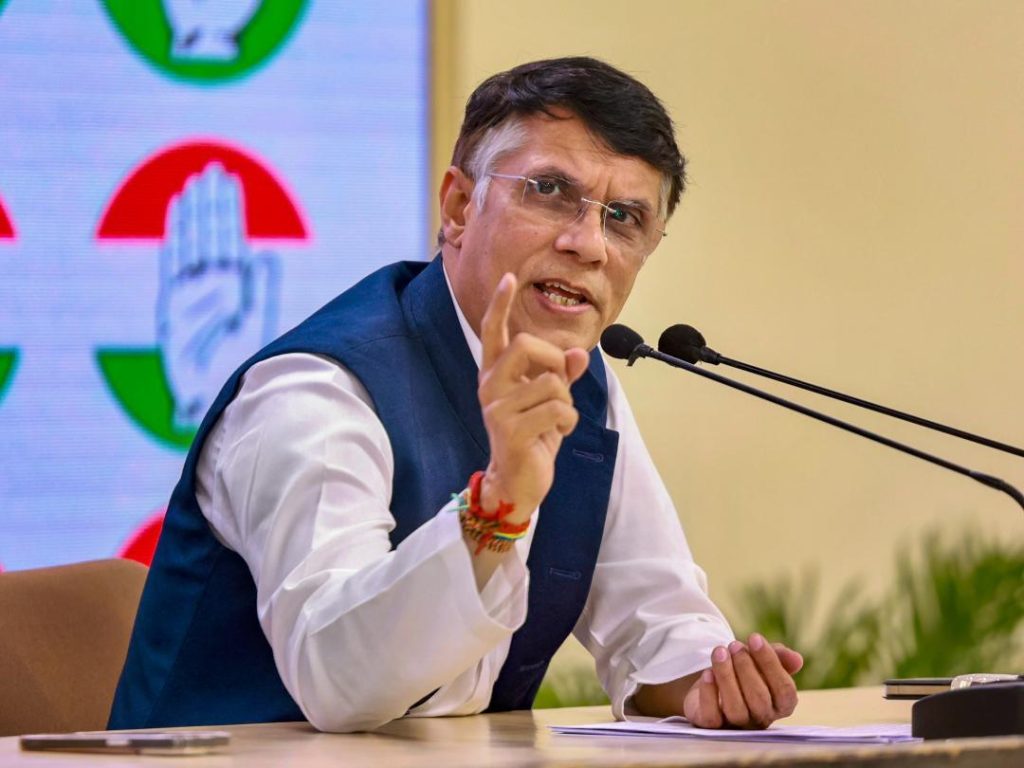
Israel Shares Map Showing J&K in Pakistan, Apologises Later
In a recent incident that has sparked controversy, the Israel Defense Forces (IDF) shared a map on their official Twitter handle, showing the Indian Union Territory of Jammu and Kashmir as a part of Pakistan. The map was shared as part of a tweet highlighting the territorial disputes between Israel and its neighbors.
The tweet, which has since been deleted, showed a map with different territorial claims marked in different colors. However, the part that raised eyebrows was the inclusion of Jammu and Kashmir in Pakistan’s claimed territory. The map was shared with the hashtag #TerritorialDisputes, and it is unclear whether the IDF intended to imply that Jammu and Kashmir is a part of Pakistan or not.
The tweet was quickly picked up by social media users, including Congress leader Pawan Khera, who targeted Prime Minister Narendra Modi, saying, “Another day, another feather in Vishwaguru’s cap. His ‘friend’ shows J&K as a part of Pakistan.” Khera’s comment was likely a reference to the close diplomatic ties between Israel and India, with both countries enjoying a strong strategic partnership.
Khera’s tweet soon went viral, and many people began to question the IDF’s intentions behind sharing the map. Some users pointed out that the map could be seen as an endorsement of Pakistan’s territorial claims over Jammu and Kashmir, which is a disputed region that has been a flashpoint between India and Pakistan for decades.
However, the IDF later issued an apology, saying that the map was an illustration and didn’t depict precise borders. The IDF statement said that the map was meant to illustrate the complexities of territorial disputes around the world, but it acknowledged that the inclusion of Jammu and Kashmir in Pakistan’s claimed territory could be misinterpreted.
The incident has sparked a heated debate, with many people questioning the IDF’s sensitivity to India’s territorial integrity. Some have argued that the IDF should have been more careful in sharing the map, given the sensitive nature of the issue. Others have defended the IDF, saying that the map was an innocent mistake and that the apology was sufficient to rectify the situation.
The controversy has also raised questions about the nature of the India-Israel relationship. While both countries enjoy strong diplomatic ties, there are still some differences in their views on certain issues, including the Kashmir dispute. The incident has sparked a debate about whether the IDF’s apology is sufficient to repair any damage to the relationship, or whether there is a need for further clarification or action.
In the context of the Indo-Pakistani dispute over Kashmir, the incident has also highlighted the importance of accuracy and sensitivity in discussing territorial disputes. It is crucial for all parties involved to be mindful of the sensitivities and complexities of the issue, and to avoid any actions that could be perceived as endorsing or legitimizing the territorial claims of one side over the other.
The incident is also a reminder of the need for greater diplomatic awareness and cultural sensitivity in the digital age. In today’s world, where social media has become a powerful tool for shaping public opinion and influencing global events, it is essential for governments, political leaders, and diplomats to be mindful of the potential consequences of their actions and to exercise greater caution in sharing information and opinions.
In conclusion, the incident highlights the need for greater sensitivity and awareness in discussing territorial disputes, particularly in the context of sensitive regions like Kashmir. While the IDF’s apology is welcome, it is essential for all parties involved to be mindful of the potential consequences of their actions and to exercise greater caution in sharing information and opinions. The incident serves as a reminder of the importance of diplomacy, cultural sensitivity, and accuracy in the digital age.
News Source:
https://x.com/Pawankhera/status/1933549006367416545






